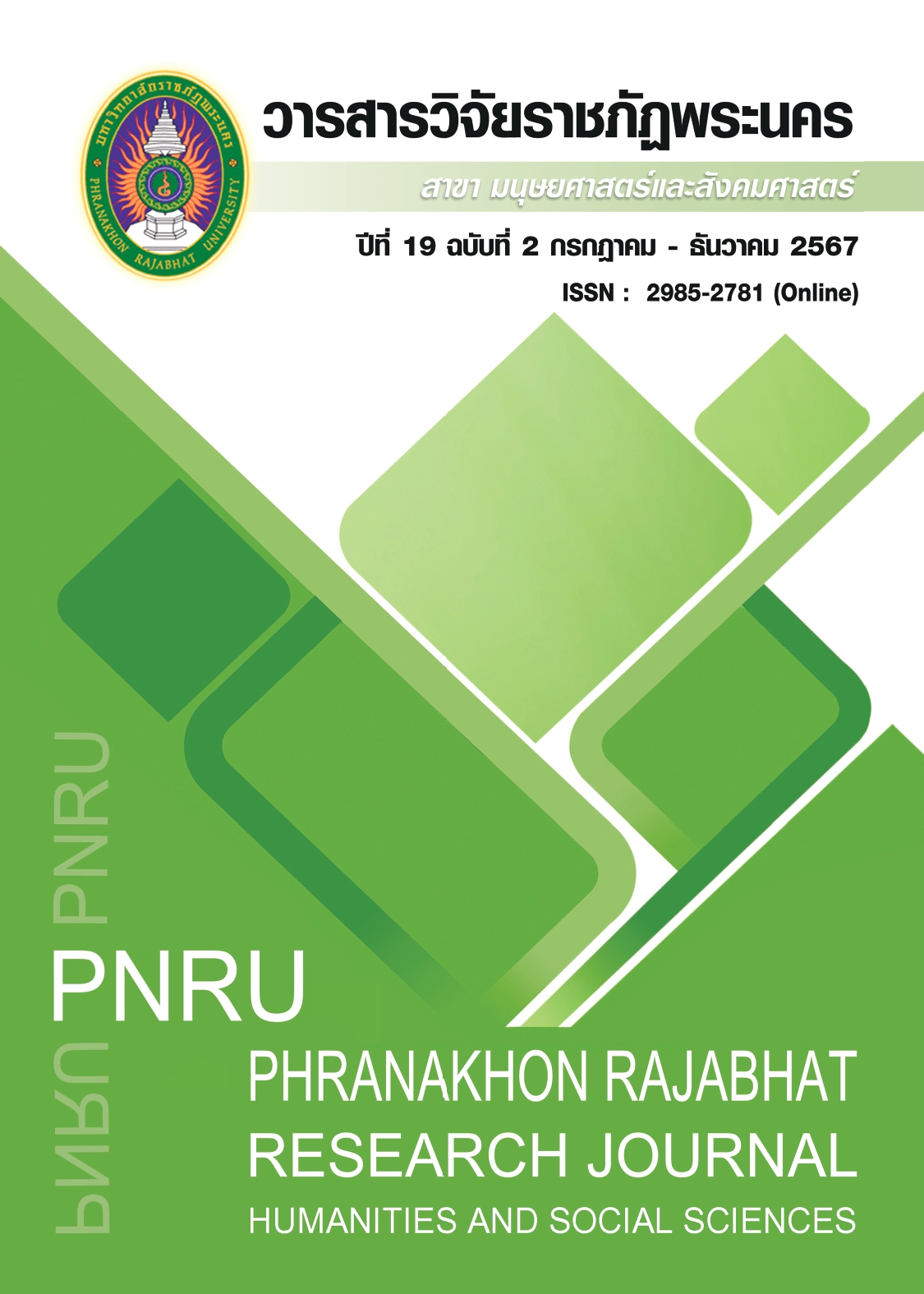DEVELOPING GUIDELINES FOR IMPROVING THE ENGLISH STUDY COURSES FOR MATHAYOM 1 SECONDARY STUDENTS AT RAJAVINIT MATHAYOM SCHOOL, BANGKOK
Main Article Content
บทคัดย่อ
The objectives of this research were 1. to study the problems and obstacles in learning English courses. 2. to study the satisfaction level in learning English courses. 3. to propose guidelines for improving English classes. This research was mixed-method research. Qualitative research collected data through interviews, open-ended questionnaires, and focus groups to study problems in the use of English and to propose guidelines for improving English courses. In addition, the researcher used quantitative research to collect data by using questionnaires to study satisfaction with learning English collected from students at Rajavinit Mathayom School in Bangkok Province a total of 200 people.
The results of the study showed that regarding the problems in learning English for courses. The school provides the native teacher to teach the students and there is not a Thai assistant teacher to help or explain the students to understand clearly. 2. The level of opinions of students regarding their satisfaction in learning English courses, was at a high level. Considering each aspect, activities in the classroom were at the highest average followed by teaching materials, contents, learning evaluations, and teaching methods respectively 3. According to the guidelines, it was found that there were 5 guidelines proposed in terms of learning English namely: 1. Providing Thai assistant teachers, following up on the students more, the native teachers speak more slowly and clearly, and providing daily life English speaking. Lastly, providing vocabulary activities.
Article Details

อนุญาตภายใต้เงื่อนไข Creative Commons Attribution-NonCommercial-NoDerivatives 4.0 International License.
บทความที่ได้รับการตีพิมพ์เป็นลิขสิทธิ์ของมหาวิทยาลัยราชภัฏพระนคร
ข้อความที่ปรากฏในบทความแต่ละเรื่องในวารสารวิจัยราชภัฏพระนครเล่มนี้เป็นความคิดเห็นส่วนตัวของผู้เขียนแต่ละท่านไม่เกี่ยวข้องกับมหาวิทยาลัยราชภัฏพระนคร และคณาจารย์ท่านอื่นๆในมหาวิทยาลัยฯ แต่อย่างใด ความรับผิดชอบองค์ประกอบทั้งหมดของบทความแต่ละเรื่องเป็นของผู้เขียนแต่ละท่าน หากมีความผิดพลาดใดๆ ผู้เขียนแต่ละท่านจะรับผิดชอบบทความของตนเองแต่ผู้เดียว
เอกสารอ้างอิง
Padlian, B. & Jongkonklang, S. (2020). A study of academic achievement in English and Reading comprehension ability of Mathayom 1 students using SQ4R learning management together with multipart strategies. Journal of Education Burapha University. 31(3), 99-108. (In Thai)
Iambunyarit, P., Phuripanik, C. & Rakbamrung, T. (2020). Teaching analytical reading through the Active Learning process to develop analytical thinking skills of Thai children in the Gen Z era. Journal of Education Burapha University. 31(3), 1-11. (In Thai)
Praimahaniyom, T., Kamutthapichai, C. & Panklam, A. (2023) Enhancing English Reading for Critical Thinking with Aesop’s Fables for EFL Learners. Journal of Innovation in Educational Management and Research, 5(3), 124-138. (In Thai)
Jedo, K. (2017). Satisfaction of YRU Students towards Teaching English base on Communitive Language Teaching Approach. (Report No. 34). Yala, Thailand: Yala Rajabhat University. (In Thai)
Srisuwan, P. (2013). Students’ attitudes towards learning English with native and Non-native English-speaking teacher. Unpublish Master’s Research Paper, Language Institute, Thammasat University, Bangkok.
Kok, E. & Ekkapon, P. (2018). Willing to Communicate among Thai EFL Students: Does English Proficiency Matter? Journal of ASIA TEFL, 15(3), 590-602.
Pornpimon, P. (2019). English Education at Primary Level in Thailand. Srinakharinwirot University, Thailand.
Nutcha, O. & Chuanpit, S. (2020) Problems and Needs in English Language Teaching from the Viewpoints of Pre-service English Teachers in Thailand. Asian Journal of Education and Training, 6(4), 592-601.
Taridi, M. & Sanjaya, M.E (2018) Communicative English language learning program with CIPP: An evaluative study. Education and Humanities Research, 253. https://doi:10.2991/aes-18.2019.102
Yusica, U. (2014). Problem faced by Thai students in speaking English.
Unpublish Master’s Thesis, English language department, The State Islamic Institute of Tulungagung.
Tanuya, P., Chonticha, K. & Sirinrat, S. (2024) Teaching Guidelines to Promote the Use of English for communication of Universities in Pathum Thani Province. Journal of Humanities Phranakhon Rajabhat University, Bangkok. 19(1). (In Thai)


